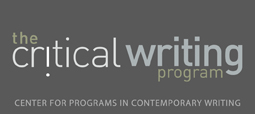History
An Overview of the Discipline
History looks back at events that have already occurred and interprets their significance and impact. Sub-fields within history often focus on a particular nation, area, and time period (for example, 19th century India). In addition, historians may focus on a particular theme, such as Judaism or diplomacy, and how it changes over time.
Writing in the Discipline
Reasoning
History is a qualitative field that combines explanation, argument, and narration. Therefore, writing in history is a blend of types of reasoning that are mainly determined by the genre of the piece (see Genre below). Historians, while trained to write for their peers, also often write for a larger lay audience that is interested in the past. Scholarly articles and books are written for historians and other specialists in the field, and thus are likely to include an examination of the history of debates about the topic under discussion. In contrast, trade press books written for a general audience are more likely to tell their story of the event or object, providing footnotes to verify the accuracy of their account.
Evidence
Evidence in history is typically text-based—books, letters, articles—but may also include objects, images, and statistics. Historians often use firsthand accounts from the time. Some professors emphasize the importance of maintaining an accurate, factual history, and assert that historians should stick to facts rather than making hypothetical claims. Other scholars in the field of history argue that historians often need to incorporate empirical as well as speculative claims, while making sure to distinguish when the claim is based on facts or on speculation.
Authorship
As one professor notes, authorship in history is "overwhelmingly individual." Some books and articles are co-authored, but they are the exception rather than the rule.
Goal
The goal of historical writing differs according to genre. In scholarly work, the goal is typically to affirm or critique a prevailing position or account. For example, a historian may point to a concept or interpretation of a text and show how it is correct or incorrect. In more popular works, a historian may explain a historical event or construct a narrative based on fact to engage and educate readers about a particular historical event.
Writing Tips
Important Criteria for Student Writing
Professors do not entirely agree on what counts as most important in student writing, but all emphasize the importance of a well-written paper. While some look for original ideas from their students, others argue that originality is hard to achieve even for specialists. All, however, agree that reasoning, evidence, clarity, organization, grammar and mechanics are important.
Common Errors
Common errors by students include being overambitious and spending too much time researching. Another problem occurs when students distort facts in order to serve a particular interpretation. Dr. Steinberg notes that sometimes a student paper suffers from a lack of imagination. Noting that history writing is composed of three characteristics—fact, argument, and imagination—Dr. Steinberg says that imagination is what allows us to "imagine the past as alive." The capacity to imagine the past helps students to avoid suffering from "presentism" in interpreting the meanings of words and events of the past.
Tips for Student Writers
Avoid weak verbs and passive voice. Aim for elegance, precision, concision and clarity. As Dr. Nathans points out, "very few historical ideas are so complex as to require two or three readings to be understood." Write to be understood the first time.
Genre
Student Assignments
One encounters many kinds of writing assignments in the field of history, each with somewhat different expectations and norms. A research paper in history will require primary sources from the time and place that is being analyzed, providing context as well as using the sources to weave a story. Students may also be asked to write historiographical essays that analyze secondary sources (work by other historians). These essays analyze the persuasiveness of arguments made by historians as well as how those arguments are made. Professors in history also assign close readings of a piece of writing, as well as book reviews of scholarly or popular work by historians. Other assignments may include essays on topics and writings assigned by the professor. Take home written exams are a common occurrence in history classes.
Professional Genres
Genres in the field of history include scholarly articles and books as well as biographies, trade press books, editorials. Historians may also be found writing for film and television, serving as experts and consultants as well as authors of series.
Additional Resources
Helpful Books and Articles
WH Walsh, An introduction to philosophy of historyJohn H. Arnold, History: a very short introduction
Mary Rampolla, A Pocket Guide to Writing in History
© 2013-2014 The University of Pennsylvania
Meet the Professors

Dr. Arthur Waldron
Professor Waldron has a deep and abiding interest in the root causes of human violence, the horrors or war, and how they may be dealt with—topics on which he regularly teaches, and has written. More...

Dr. Jonathan Steinberg
Jonathan Steinberg teaches modern Europe since 1789 with specializations in German & Austrian empires, Nazi Germany, Fascist Italy, and modern Jewish history. More...

Dr. Benjamin Nathans
Dr. Benjamin Nathans is the Lauder Endowed Term Associate Professor of History specializing in modern Russian, Soviet and modern Jewish history. More...
